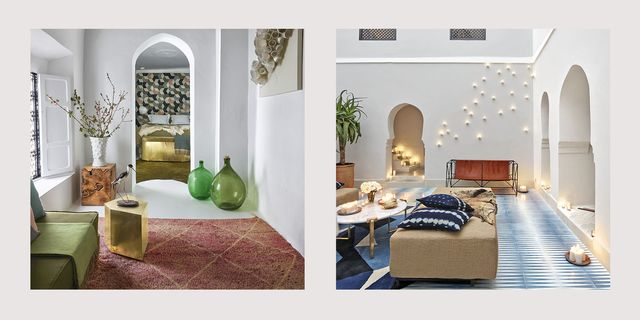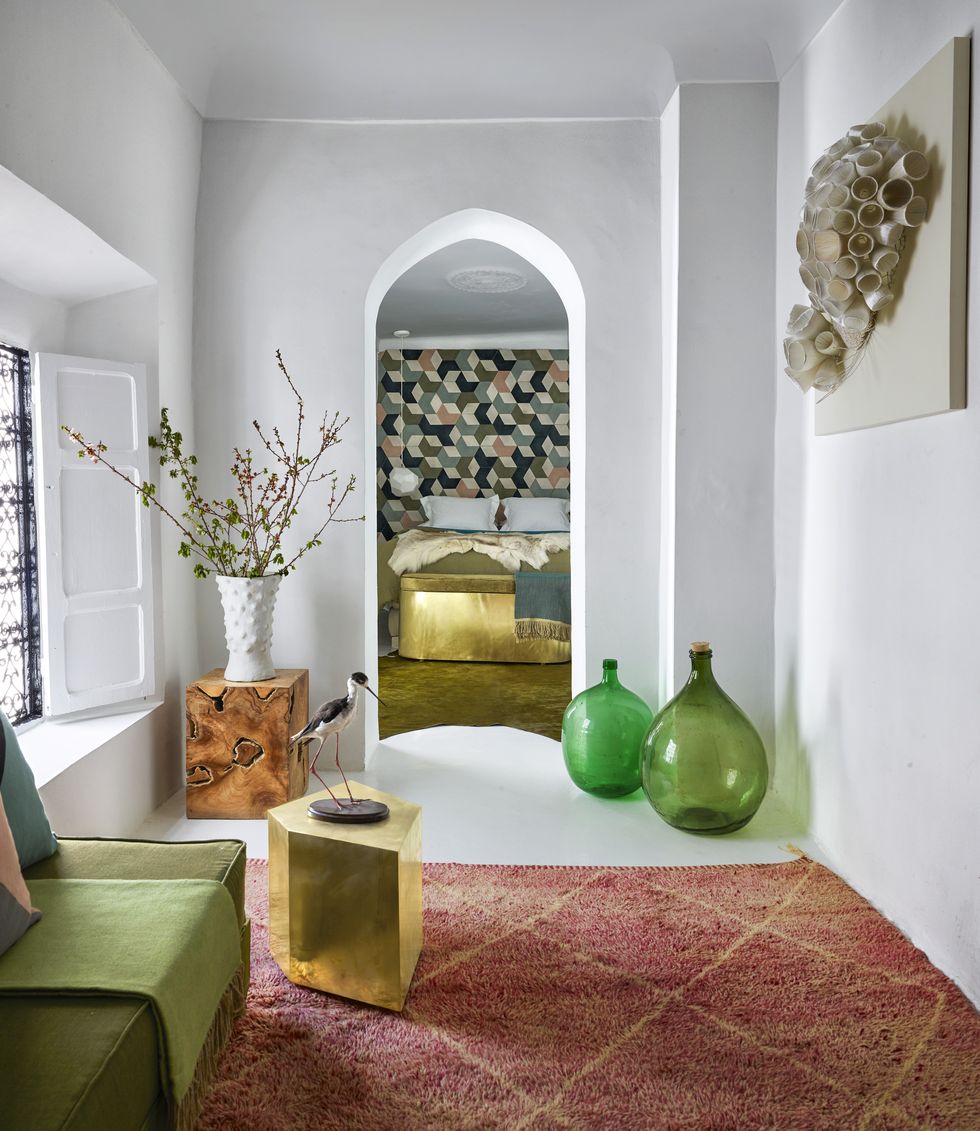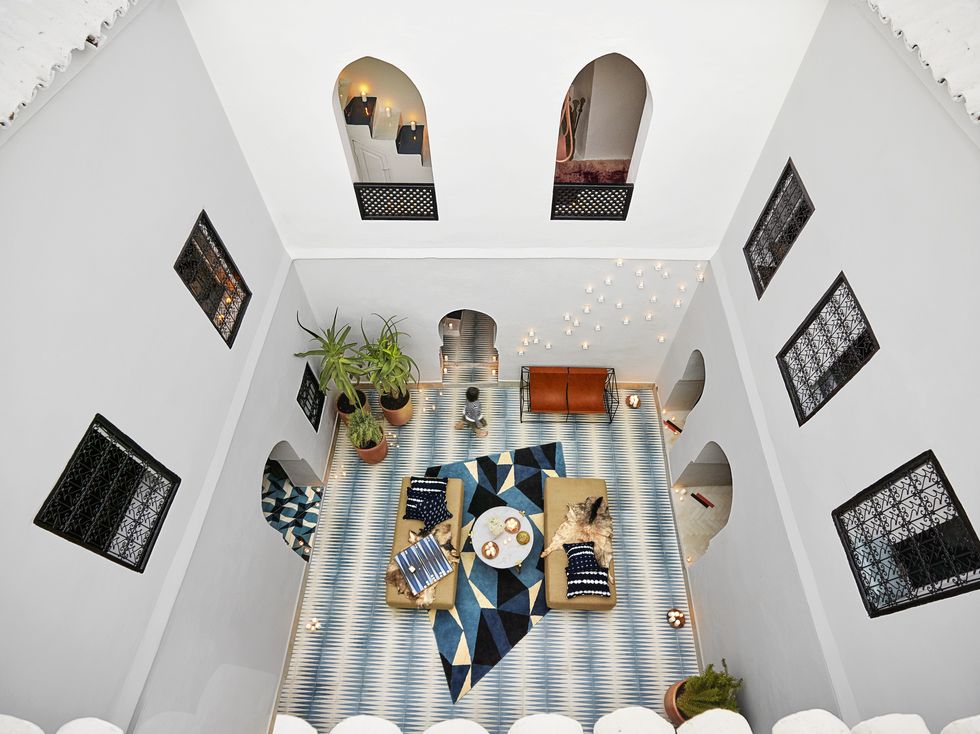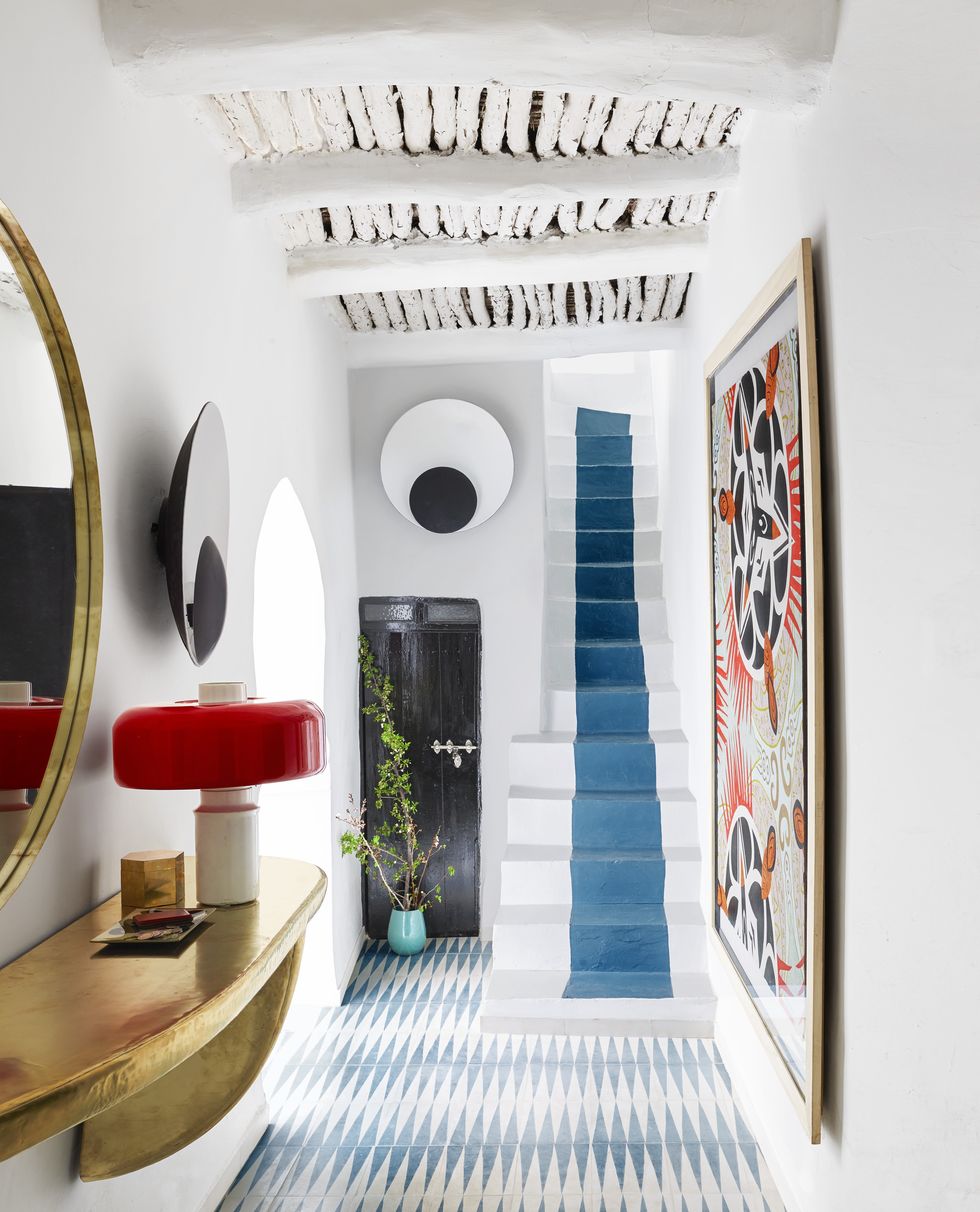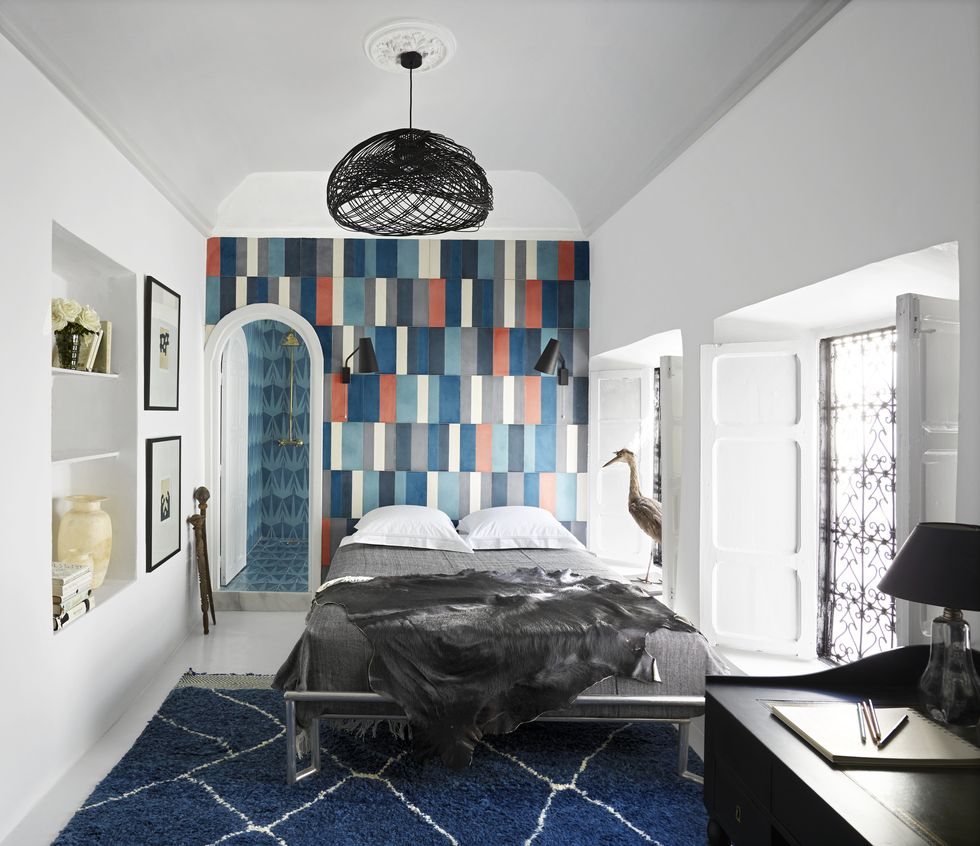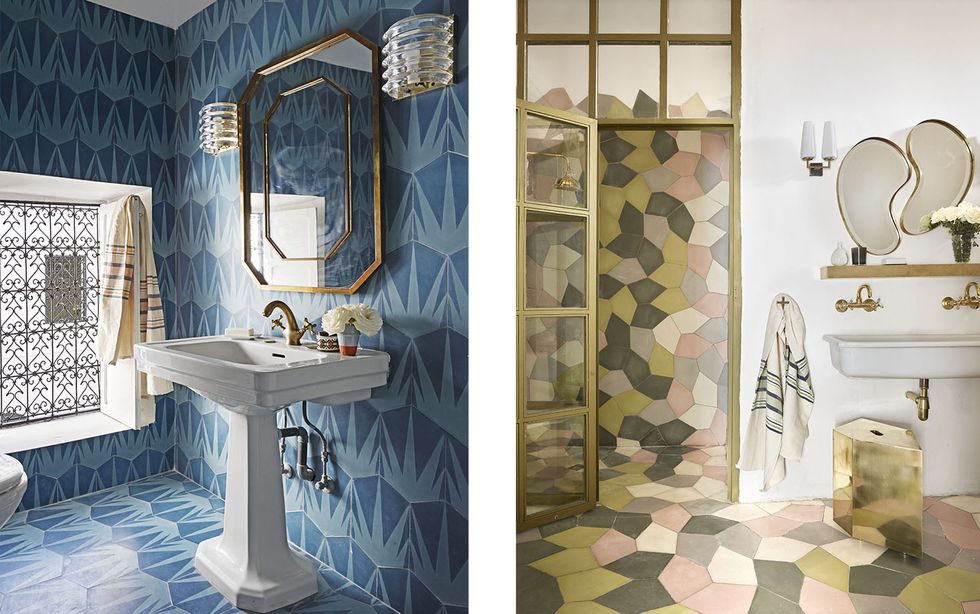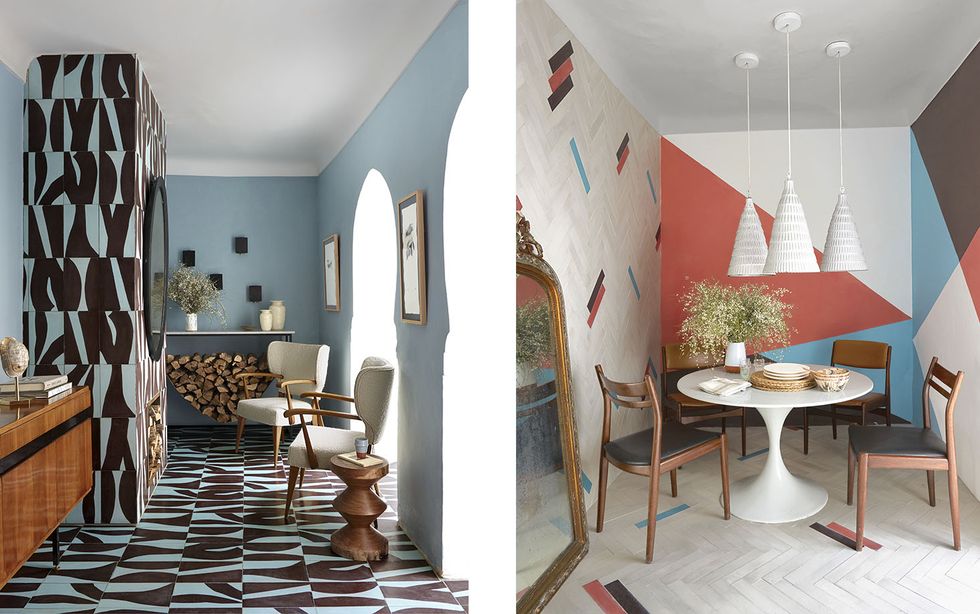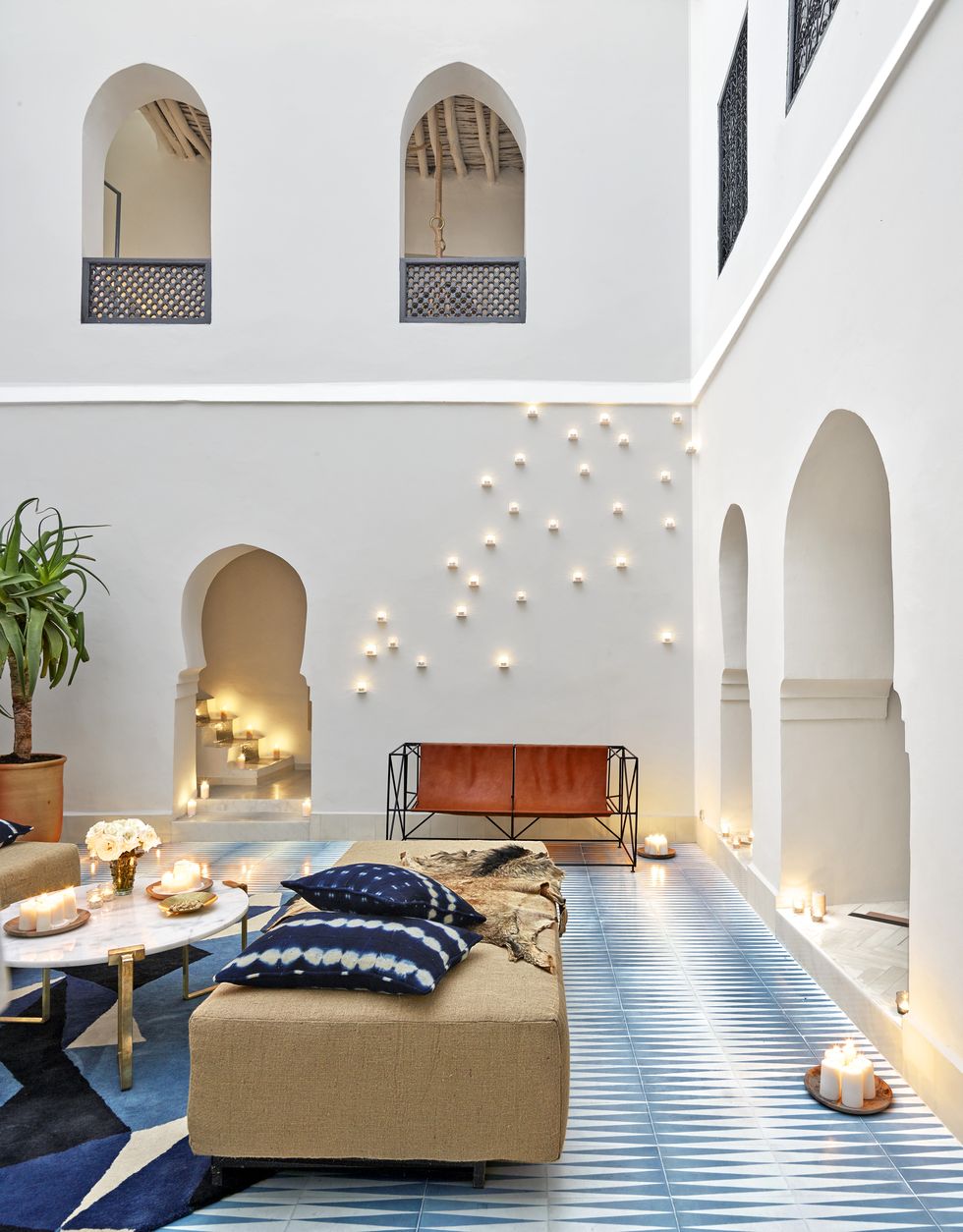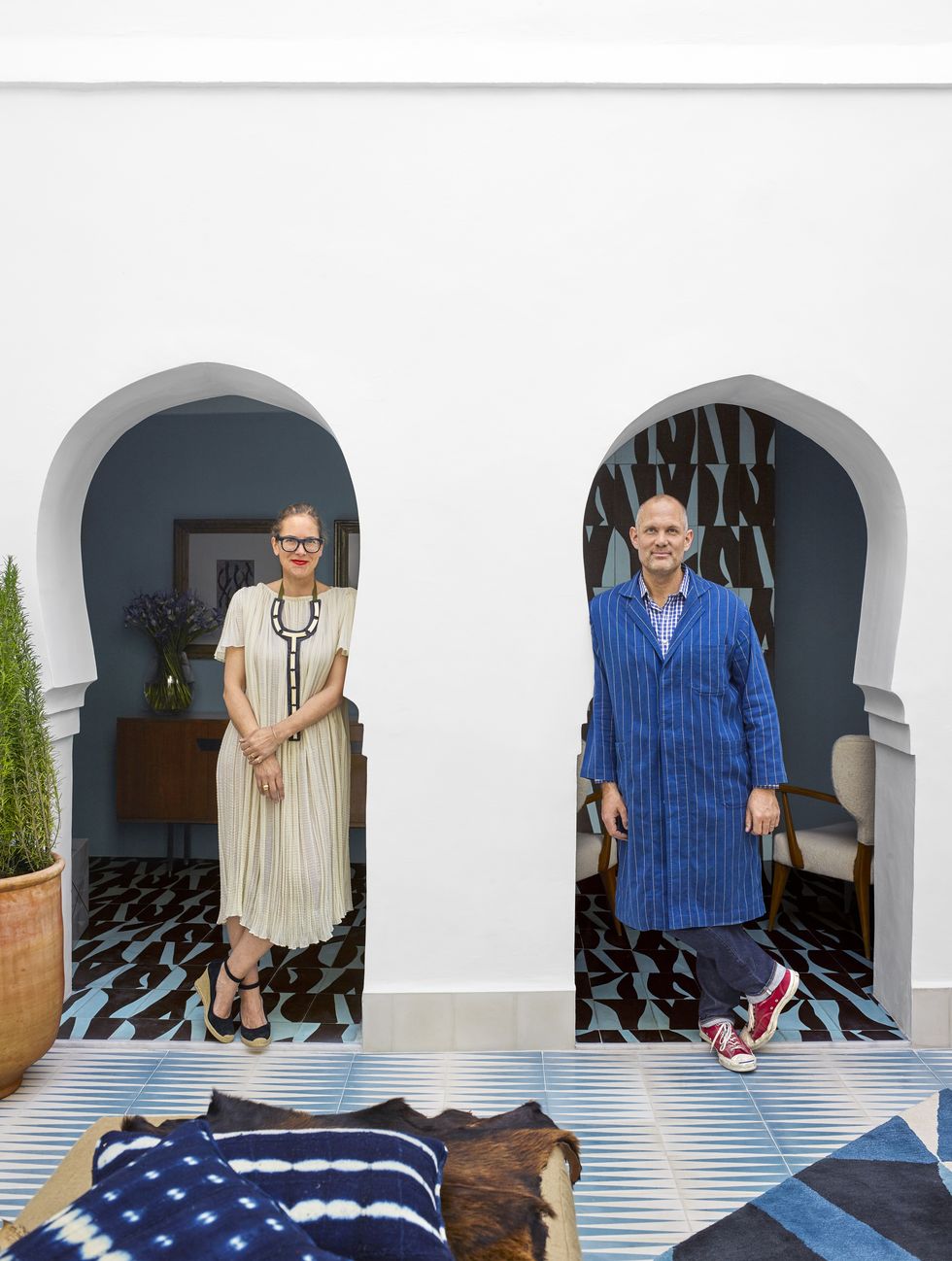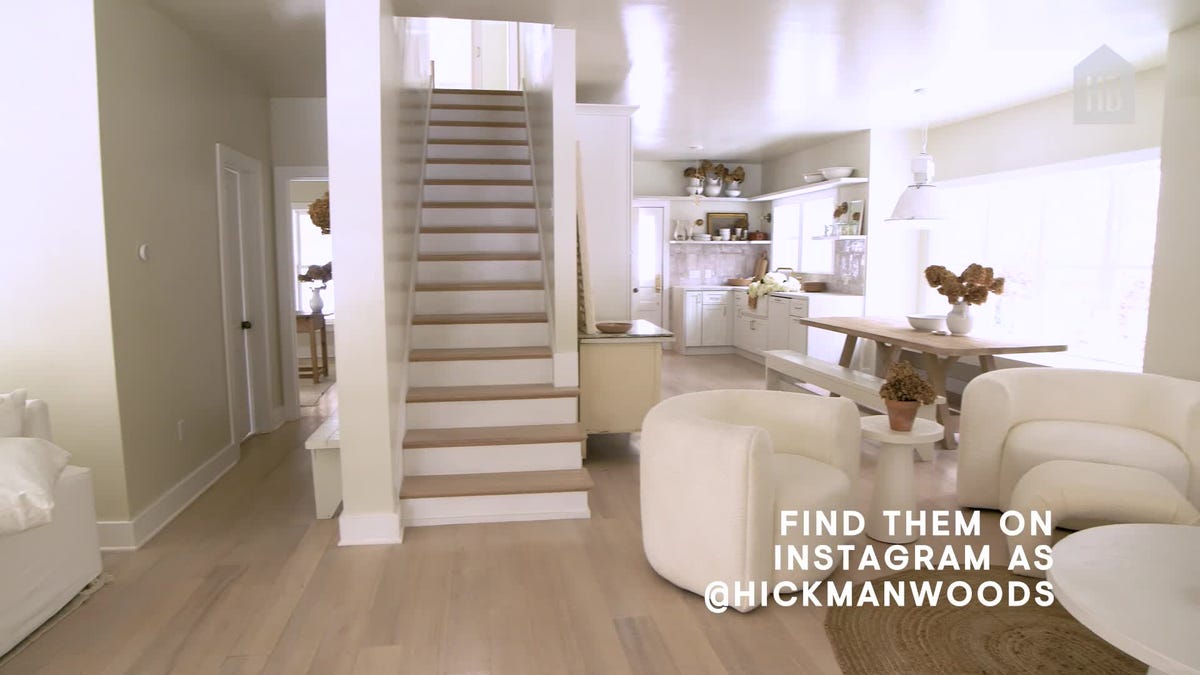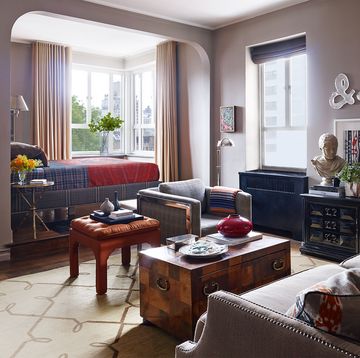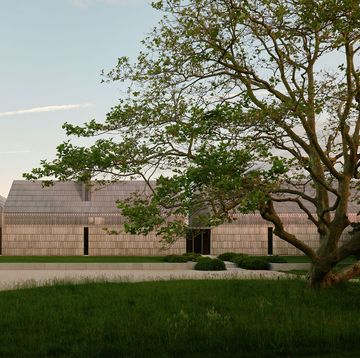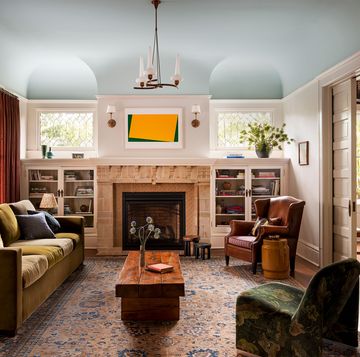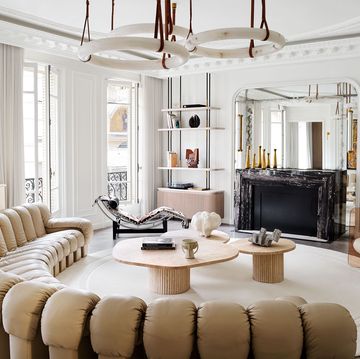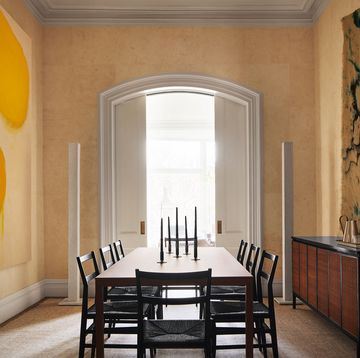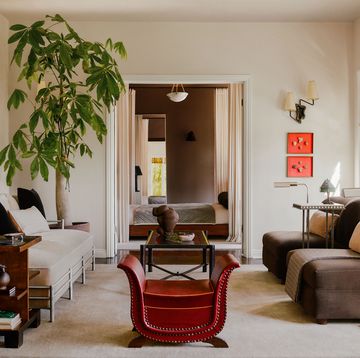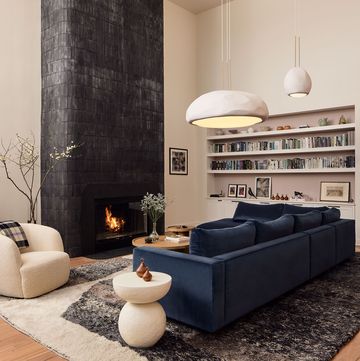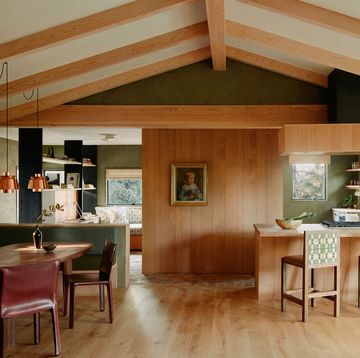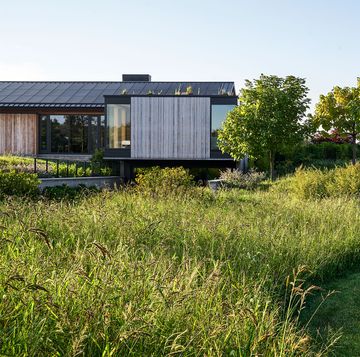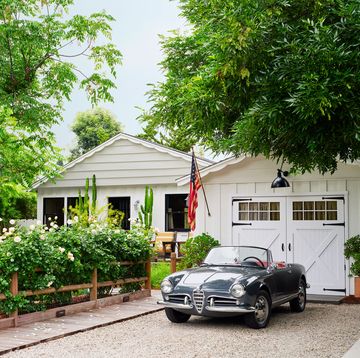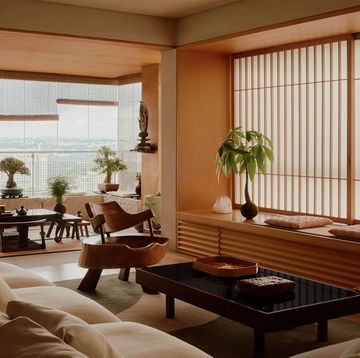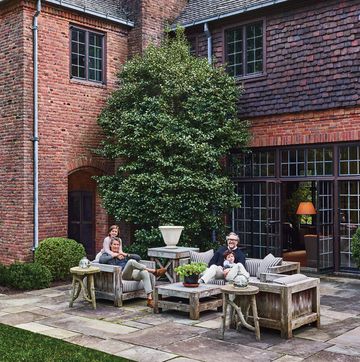Twelve years ago, Caitlin and Samuel Dowe-Sandes headed to Marrakech from Los Angeles with the plan to take a year off from their careers in public relations and filmmaking, respectively, and indulge in an adventurous sabbatical. From the start, they fell in love with Morocco’s artisan culture: the pierced-sheet-metal lanterns; the Beni Ourain hand-knotted abstract rugs; the embroidered leather poufs. Within weeks, they bought a small three- bedroom riad, in a mosque complex within the dusty pink walls of Marrakech’s old town, and started to renovate the interiors, working with local craftspeople to design and make bespoke furniture and lighting.
Instead of just buying traditional cement tiles for the floors, they decided to design their own, creating a black-and-white squiggle pattern for the living-room floor and a coral-branch one for the guest-room wall. This was the birth of their company, Popham Design, which produces brightly colored, boldly patterned encaustic cement tiles that add a dose of optimism to any interior, including the stylishly retro Haymarket hotel in Stockholm, Jade Jagger’s beach house on the tiny Spanish island of Formentera, and Pierre Frey’s home in Normandy.
In the courtyard, the love seat is from a flea market, the burlap sofas are custom, the throws on the sofas are goatskin, and the pillows are made from a Malinese fabric. The rug, board game, and cocktail table are all by Popham+. The plants are rosemary, sage, and aloe trees set in MC Pots planters. The wall paint is custom, and the balcony screens are wooden moucharaby painted in black enamel.
Even back then, the couple had ideas for other products inspired by Moroccan artisans. They were continuously collaborating with local craftspeople on one-off pieces for their home, like painted-wood tables and mirrors fringed with porcupine quills. At one point, they had the seats of their Renault 4 car upholstered in vintage kilims.
“There is so much freedom to create things in Marrakech that it just makes you giddy,” Caitlin says. After growing Popham Design’s business over a few years—and building their own tile factory—the couple branched out in 2016 with a showroom in Paris highlighting some of their designs, including a stunning sculptural table and large-scale hanging lamp, both in brass. In November 2018, the company launched Popham+, a new collection of objects in brass, leather, and marble, as well as rugs. “We always meant to move into other areas, which is why we named the company Popham Design and not Popham Tiles,” Caitlin says.
Their own residences have always been their best creative laboratories. Seven years ago, when they rented out their riad and moved to Gueliz, Marrakech’s “new town,” after having a child, they lived in two different bungalows (one of which appeared in the September 2015 issue of ELLE DECOR). In each house, they experimented: For one, they worked with a brass artisan to create plus sign–shaped sink taps and lighting fixtures; in the other, they had a local saddlemaker fashion a rose-colored leather swing for their daughter, Georgina. Last year, they decided to reinvent every room of their 18th-century, three-bedroom medina home (whose previous iteration ED featured in April 2008), using it as a showplace for all of the design projects—from rugs to lighting fixtures to tables—that they have been developing.
“We realized our old house could be the ultimate playground for our new collections,” Caitlin says. “We never do something officially until we play with the idea in our own home.” Sometimes, quite literally: A game of backgammon with friends inspired them to produce similarly patterned tiles, which they then used, in cream and teal, on the floor of their central courtyard and entry. More recently, they used the same tile pattern as a template for an exclusive Popham+ backgammon set, complete with brass game pieces. “It’s actually a natural move, as the molds of our tiles are made of brass,” Samuel says.
LEFT: In the living room of Caitlin and Samuel Dowe-Sandes’s 18th-century medina house in Marrakech, the vintage Finn Juhl chairs are in a Pierre Frey fabric, the 1950s French credenza is from a local antiques shop, the stool is by Pols Potten, and the console is by Popham+. RIGHT: The table in the dining area is by Eero Saarinen for Knoll, the vintage chairs are by Frem Rojle, and the pendants are by Kim & Garo.
The combined kitchen and dining room is an explosion of color and pattern, evocative of the joyous 1980s Memphis Group: Both the floor and one wall are covered in Popham Design’s Baguette tiles, while two other walls are painted with abstract murals reflecting the same colors and shapes.
Popham+ also offers rugs inspired by Popham Design tiles, a pentagon-shaped example of which is in the courtyard. But not everything is a de facto prototype: In the entry hallway, a large-scale black-and-white abstract painting with pops of fiery red and light blue, by Samuel’s artist father, Roger Sandes, takes up one wall. “He is working on a new series where he looks at his old paintings through a kaleidoscope, and then he paints what he sees, creating new work,” Caitlin explains. “That’s sort of how we view this new version of our old house. It’s important to rethink and reinvent things. You don’t need to discard past work; you just have to look at it through a different lens.”
